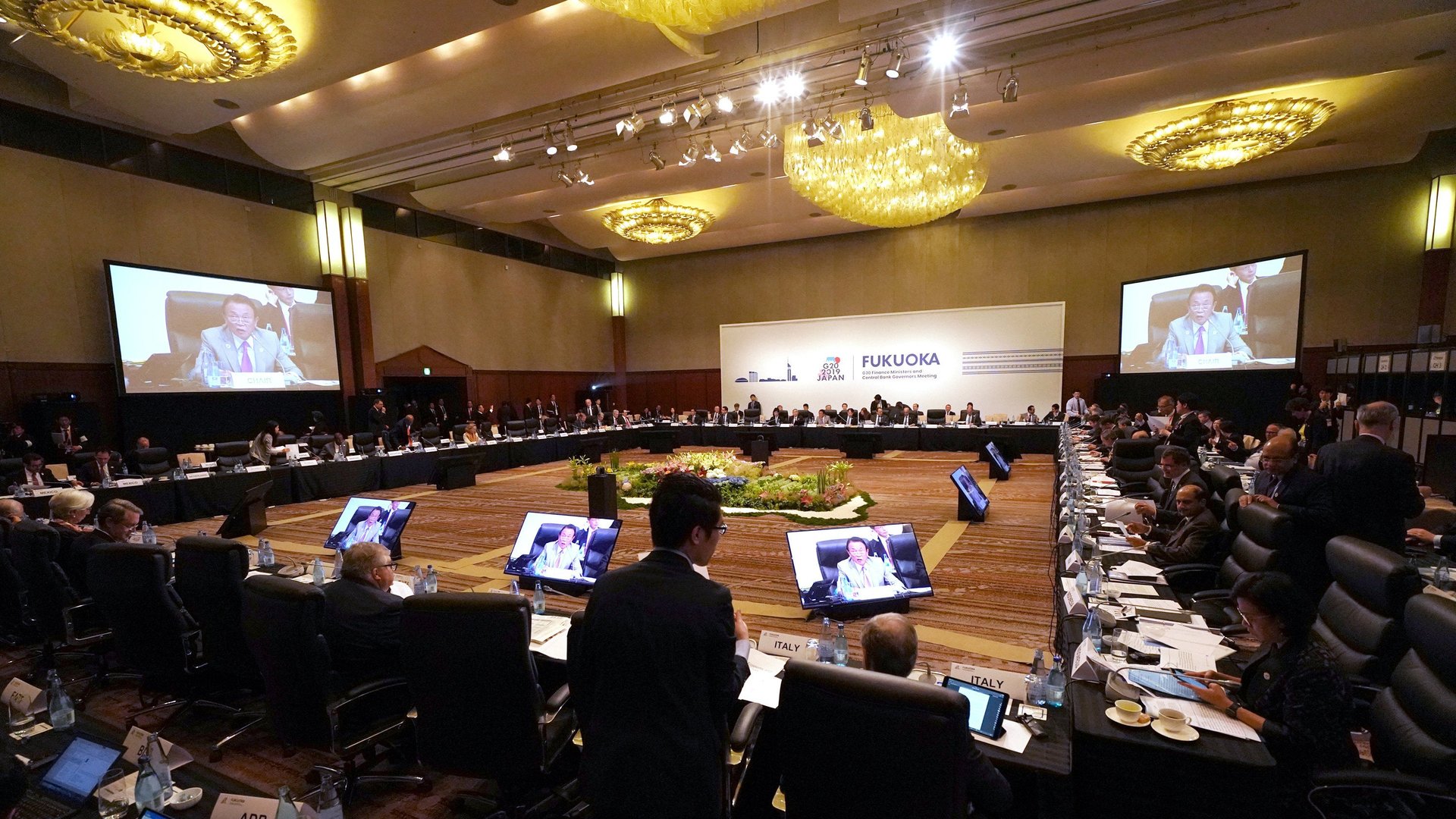The world’s biggest economies are moving closer to a global tax for big tech
The world’s largest economies took a step toward effectively taxing tech giants like Facebook and Google, by compiling rules that would close loopholes used to avoid corporate taxes. Such a crackdown could make it harder for multinational tech firms to reduce their tax burden by booking profits in countries that have low tax rates, according to Reuters, citing a draft communique by G20 finance ministers, who are meeting in Japan.


The world’s largest economies took a step toward effectively taxing tech giants like Facebook and Google, by compiling rules that would close loopholes used to avoid corporate taxes. Such a crackdown could make it harder for multinational tech firms to reduce their tax burden by booking profits in countries that have low tax rates, according to Reuters, citing a draft communique by G20 finance ministers, who are meeting in Japan.
If implemented, such rules would result in greater tax burdens for big tech, but would also mean blowback for countries like Ireland that attract companies with the promise of lower tax rates. The EU has been looking at ways to overhaul such taxes, despite opposition from officials in Ireland. France and the UK have been especially supportive of such a revamp.
The US, home of many of the world’s biggest tech companies, has pushed back, arguing that internet companies are being unfairly targeted. Treasury secretary Steven Mnuchin said the US has “significant concerns” about proposals from France and the UK, but later also indicated that there was “strong consensus” about the aims for tax reform, Reuters reported.
The G20 is considering a two-pronged approach. The first would divvy up the rights to tax a firm based on where its services or goods are sold, even if it doesn’t have physical operations in that nation. If the company is still able to account for its profits in offshore havens or low-tax countries, then nations would apply a global minimum tax rate.
“We cannot explain to a population that they should pay their taxes when certain companies do not because they shift their profits to low-tax jurisdictions,” French finance minister Bruno Le Maire said during a panel discussion, according to Reuters.